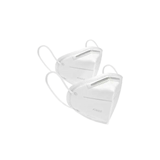WorkSafe
WorkSafe WA Commissioner Nina Lyhne said today that WorkSafe inspectors had also reported concerns with the low rate of vaccination in some high-risk areas.
“Workers in some areas such as hospitals are generally vaccinated, but there are others working in some areas who need to be reminded of the risk of illness associated with their jobs,” Lyhne said.
“The diseases of most concern during this inspection program are Hepatitis A and Hepatitis B.”
Both diseases affect the liver and have similar symptoms including abdominal discomfort, nausea, loss of appetite, tiredness, fever and jaundice. The diseases can vary in severity from mild illness to long-term liver damage and death, and they differ in the way they are passed on.
Both Hepatitis A and B can be prevented by vaccination of non-immune persons. The vaccination is safe, and provides the most effective means of controlling the risks.
The Hepatitis A virus is spread by eating and handling food or drink that has been contaminated with the virus. It is a risk for workers who are exposed to human excreta, including sewage workers, plumbers and those who care for people with personal hygiene difficulties. The virus can survive in moist conditions for weeks.
The Hepatitis B virus is found in the blood or bodily fluids of persons who are carriers. Infection occurs through needlestick injuries, splashes in the eye or contact with infected blood or body fluids through open wounds. It is a risk for healthcare workers and others at risk of needlestick injuries. The virus can survive outside the body for at least a week.
“One of the major worries is the risk of workers coming into contact with syringes – we’re informed that the yearly distribution of syringes in WA is around 3 million, and many of these would not end up in sharps disposal containers,” Lyhne said.
“WorkSafe is in the process of contacting industry associations to make them aware of this targeted inspection drive and to let them know what is expected of their members with regard to precautions against infectious diseases.”
WorkSafe inspectors will visit 50 workplaces, concentrating on health services such as dentists and community services, along with laundries, cleaning companies and plumbers.
They will be ensuring that safe work practices are in place for the prevention of Hepatitis A and B, including provision of information and vaccination where appropriate.
The Commission for Occupational Safety and Health has published a Code of Practice on the Management of HIV/AIDS and Hepatitis at Workplaces, and it is recommended that all workplaces at risk from the diseases have a readily-available copy of the Code.
“This inspection program aims to inform and educate workers at risk and, by doing so, to reduce the incidence of these infectious diseases and their possible consequences,” Lyhne said.
Further information on Hepatitis A and B and the Code of Practice can be obtained by, telephoning WorkSafe on 9327 8777 or on the website at http://www.worksafe.wa.gov.au" target="_blank">www.worksafe.wa.gov.au.


